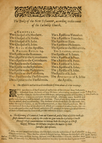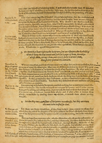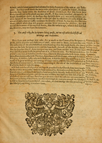The Books of the New Testament, according to the count of the Catholic Church.
- 4 Ghospels.
- The Ghospel of St. Matthew.
- The Ghospel of St. Mark.
- The Ghospel of St. Luke.
- The Ghospel of St. John.
- The Acts of the Apostles.
- St. Paul’s Epistles. 14.
- The Epistle to the Romans.
- The 1 Epistle to the Corinthians.
- The 2 Epistle to the Corinthians.
- The Epistle to the Galatians.
- The Epistle to the Ephesians.
- The Epistle to the Philippians.
- The Epistle to the Colossians.
- The 1 Epistle to the Thessalonians.
- The 2 Epistle to the Thessalonians.
- The 1 Epistle to Timothee.
- The 2 Epistle to Timothee.
- The Epistle to Titus.
- The Epistle to Philemon.
- The Epistle to the Hebrews.
- The 7 catholic epistles.
- The Epistle of St. James.
- The 1 Epistle of St. Peter.
- The 2 Epistle of St. Peter.
- The 1 Epistle of St. John.
- The 2 Epistle of St. John.
- The 3 Epistle of St. John.
- The Epistle of St. Jude.
- The Apocalypse of St. John the Apostle.
1. The infallible authority and excellence of them above all other writings.
The excellence of the Canonical authority of the old and New Testament, is distincted from the books of later Writers: which being confirmed in the Apostles’ times, by the succession of Bishops, and propagations of Churchs, is placed as it were in a certain throne on high, whereunto every faithful and godly understanding must be subject and obedient. There, if anything move or trouble thee as absurd, thou mayest not say, The Author of this book held not the truth: but, either the copy is faulty, or the Translator erred, or thou understandest not. But in the works of them that wrote afterward, which are contained in infinite books, but are in no case equal to that most sacred authority of Canonical Scriptures; in whichsoever of them is found even the same truth, yet the authority is far unequal.
2. The discerning of Canonical from not Canonical, and of their infallible truth, and sense, cometh unto us, only by the credit we give unto the Catholic Church through whose commendation we believe both the Ghospel and Christ himself. Whereas the Sectaries measure the matter by their fantasies and opinion.
I for my part, would not believe the Ghospel, unless the authority of the Catholic Church moved me. They therefore whom I object saying, Believe the Ghospel; why should I not believe them saying, Believe not * Manichaeus? Choose whether thou wilt. If thou wilt say, Believe the Catholics: lo they warn me that I give no credit unto you: and therefore believing them, I must needs not believe thee. If thou say; Believe not the Catholics: it is not the right way, by the Ghospel to drive me to the faith of Manichaeus, because I believed the Ghospel itself by the preaching of Catholiks.
I see that concerning Christ himself, I have believed none, but the confirmed and assured opinion of Peoples and Nations: and that these Peoples have on every side possessed the Mysteries of the Catholic Church. Why should I not therefore most diligently require, specially among them, what Christ commanded, by whose authority I was moved to believe, that Christ did command some profitable thing? Wilt thou (O Heretic) tell me better what he said, whom I would not think to have been at all, or to be, if I must believe, because thou sayest it? What gross madness is this, to say, Believe the Catholics that Christ is to be believed: and learn of us, what he said.
Thou seest then in this matter what force the authority of the Catholik Church hath, which even from the most grounded and founded Seats of the Apostles, is established until this day, by the line of Bishops succeeding one another, and by the consent of so many peoples. Whereas thou sayest, This is Scripture, or, this is such as Apostles, that is not; because this soundeth for me, and the other against me. Thou then art the rule of truth. Whatsoever is against thee, is not true.
3. No Heretics have right to the Scriptures, but are usurpers: the Catholic Church being the true owner and faithful keeper of them. Heretics abuse them, corrupt them, and utterly seek to abolish them, though they pretend the contrary.
Who are you, when, and from whence came you? What do you in my possession, that are none of MY? By what right (Marcion) doest thou cut down my wood? Who gave thee licence (O Valentine a) to turn the course of my fountains? By what authority (Apelles) doest thou remove my bounds? And * you the rest, why do you sow and seed for these companions at your pleasure? It is my possession, I possess it of old, I have assured origins thereof, even from those Authors whose the thing was. I am the heir of the Apostles. As they provided by their Testament, as they committed it to my credit, they adjured me, so do I hold it. You surely they disinherited always and have cast you off as foreigners, as enemies.
Encountering with such by Scriptures, availeth nothing, but to overturn a man’s stomach or his brain. This heresy receiveth not certain Scriptures: and if it do receive some, yet by adding and taking away, it perverteth the same to serve their purpose: and if it receive any, it doth not receive them wholly: and if after a sort it receive them wholly, nevertheless by devising diverse expositions, it turneth them clean another way, &c.
4. Yet do they vaunt themselves of Scriptures exceedingly, but they are never the more to be trusted for that.
Let them not flatter themselves, if they seem in their own conceit to affirm that which they say, out of the chapters of Scripture, whereas the Devil also spoke some things out of the Scriptures: and the Scriptures consist not in the reading, but in the understanding.
Here perhaps some man may ask, whether Heretiks also use not the testimonies of divine Scripture. Yet indeed do they, and that vehemently. For thou shalt see them fly through every one of the Sacred books of the Law, through Moyses, the books of the Kings, the Psalms, the Apostles, the Ghospels, the Prophets. For whether among their own fellows, or strangers: whether privately, or publicly: whether in talk, or in their books: whether in banquets, or in the streets: they (I say) allege nothing of their own, which they endeavour not to shadow with the words of Scripture also. Read the works of Paulus Samosatenus, of Priscillian, of Eunomian, of Jovinian, * of the other plagues and pestilences: thou shalt find an infinite heap of examples, no page in a manner omitted or void, which is not painted and coloured with the sentences of the new or old Testament. But they are so much the more to be taken heed of, and to be feared, the more secretly they lurk under the shadows of God’s divine law. For they know their stinks would not easily please any man almost, if they were breathed out nakedly and simply themselves alone, and therefore they sprinkle them as it were with certain precious spices of the heavenly word: to the end that he which would easily despise the error of man, may not easily contemn the Oracles of God. So that they do like unto them, which when they will prepare certain bitter potions for children, do first anoint the brims of the cup with honey, that the unwary age, when it shall first feel the sweetness, may not fear the bitterness.
5. The cause why, the Scriptures being perfect, yet we use other Ecclesiastical writings and tradition.
Here some man perhaps may ask, for as much as the Canon of the Scriptures is perfect, and in all points very sufficient in itself, what need is there, to join thereunto the authority of the (a) Ecclesiastical understanding? For this cause surely, for that all take not the holy Scripture in one and the same sense, because of the deepness thereof: But the speeches thereof, some interpret one way, and some another way; so that there may almost as many senses be picked out of it, as there be men. For Novatian doth expound it one way, and Sabellius another way, otherwise Donatus, otherwise Arius, Eunomius, Macedonius, otherwise Photinus, Apollinaris, Priscillianus, otherwise Jovinian, Pelagius, Celestius, lastly otherwise Nestorius. (b) And therefore very necessary it is, because of so great windings and turnings of diverse errors, that the line of Prophetical and Apostolical interpretation, be directed according to the rule of the Ecclesiastical and Catholik sense or understanding.
(c) Of such articles of religion as are kept and preached in the Church, some were taught by the written word, other-some we have received by the tradition of the Apostles, delivered unto us as it were from hand to hand in mystery secretly: both which be of one force to Christian religion: and this no man will deny that hath any little skill of the Ecclesiastical rites or customs. For if we go about to reject the customs not contained in Scripture, as being of small force, we shall unwittingly and unawares mangle the Ghospel itself in the principal parts thereof, yea rather, we shall abridge the very preaching of the Ghospel, and bring it to a bare name.
Margin Notes
- 1. St. Aug. lib. 11. cont. Faust. ch. 5
- 2. S. Aug. cont. Epist. fundamenti cap. 5.
- 2. Again lib. de utilit. credend. ch. 14.
- 2. Again cont. Faustum lib. 11 cap. 2.
- 3. Tertullian lib. De praescriptionibus, bringeth in the Catholic Church speaking thus to all Heretics.
- 4. Again in the same book.
- 4. St. Jerom adversus Luciferianos in fine.
- 4. Vincentius Lirinensis lib. cont. prophanas haeresum Novationes.
- 4. * Of Calvin, of Juel, of the rest.
- 5. Vincentius Lirinensis in his golden book before cited, adversus prophanas haresum Novationes.
- 5. (a) So he calleth the Church’s sense, and the Father’s interpretations of Scriptures.
- 5. (b) Otherwise Wycleffe, Luther, Calvin, Puritans.
- 5. (c) St. Basil lib. de Spiritu Sancto. cap. 27.
Margin References
- 1. * Luther, Calvin.
- 3. a Luther, Zwinglius, Calvin
- 3. * Their Scholars and followers



